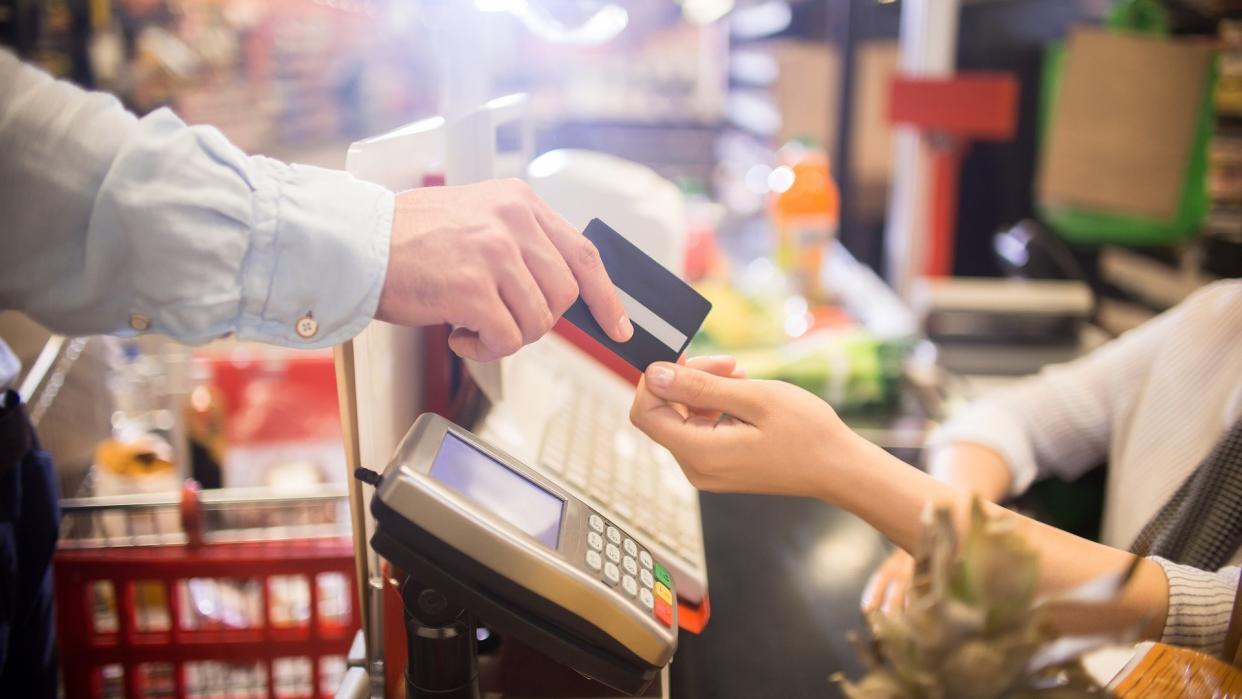Expert Warns Food Stamps Scams Becoming ‘National Disaster’ — How States Are Protecting SNAP Funds

Food stamp fraud has been on a steep rise over the past year — so much so that the U.S. Department of Agriculture issued a warning last fall about skimming and phishing scams involving the food purchasing assistance program. The problem has gotten so bad that one security expert calls it a “silent giant.”
See: If Your SNAP EBT Money Is Skimmed, Take These Steps To Reclaim Food Stamps
Find: 25% To Lose SNAP Under New Bill — Are You One of 10 Million at Risk?
Haywood Talcove, CEO of LexisNexis Risk Solutions’ government team, recently told News 12 New Jersey that criminals will target tens of thousands of families in the New Jersey/New York/Connecticut area through food stamps, formally known as the Supplemental Nutrition Assistance Program (SNAP).
What’s more, Talcove said, the government is unprepared to stop scammers, although some individual states have taken measures to deal with the problem. He estimates that food stamp fraud in the tri-state will hit nearly $1 billion this year.
“The criminal groups post-COVID who stole from unemployment insurance are now focusing their sights on the SNAP program,” Talcove said. “We will have a national disaster on our hands. Because right now, there’s little to no enforcement, legacy technology.”
One victim of SNAP fraud is Samantha Rivera, a single mother in New Jersey whose SNAP card was denied while shopping at a grocery store last October. “When I checked the transactions, there was a purchase made in Florida [at] a Sam’s Club for $600,” Rivera told News 12.
Rivera said she immediately went to the local Department of Human Resources office to report the incident and was told that these kinds of scams are “happening all over.”
Take Our Poll: Are You Concerned About the Safety of Your Money in Your Bank Accounts?
Fraud and theft involving food stamps have become so rampant that some recipients want to hold government agencies legally responsible when benefits are stolen. Among the complaints is that the food assistance program doesn’t have enough safeguards in place to prevent fraud.
A class-action lawsuit was filed against the Massachusetts Department of Transitional Assistance — the agency that oversees the state’s food-stamp program — because it wouldn’t reimburse fraud victims for stolen benefits
One plaintiff in the case was the victim of “skimming,” in which scammers use a device to steal the card number and PIN off someone else’s Electronic Benefits Transfer (EBT) card, which is used to pay for SNAP purchases. The cards are designed to work like debit cards. However, they don’t have the same built-in protections you will find with bank-issued debit or credit cards.
Another popular scam is phishing, in which criminals send fraudulent messages that look like they’re coming from a reputable source. The USDA said criminals are posing as SNAP case workers to try to obtain recipients’ EBT card information.
The agency shared the following tips to avoid theft and fraud:
Keep your PIN secret. Don’t share it with anyone outside your household and cover the keypad when you enter your PIN on a machine. You also should change your PIN frequently.
Check your EBT account regularly for unauthorized charges. If you notice any unfamiliar charges, change your PIN immediately to stop the thief from making any new purchases.
Double-check card reading machines. Make sure there’s nothing suspicious overlaid or attached to the card swiper or the keypad. Overlays can be difficult to detect, but are often bigger than the original machine and might also hide parts of the machine.
Meanwhile, several states and the District of Columbia have upgraded their data, IT systems and staff intelligence to cut down on SNAP fraud, CNN reported. These states have been awarded SNAP Fraud Framework Implementation Grants to improve “fraud prevention, detection, and investigation” by using the SNAP Fraud Framework toolkit.
Food Stamps: Can SNAP Be Used to Pay Your Water Bill?
If you believe you’ve been the victim of a skimming or phishing scam, contact your local SNAP office immediately. You also can report SNAP fraud by state on the USDA’s fraud page.
Another thing you should do is research your state’s refund policy. If you live in a state that covers stolen benefits, you’ll need to follow its directions for reporting theft. For example, in California, beneficiaries can report stolen EBT cards to the EBT customer service helpline, file a police report and fill out a theft report.
More From GOBankingRates
This article originally appeared on GOBankingRates.com: Expert Warns Food Stamps Scams Becoming ‘National Disaster’ — How States Are Protecting SNAP Funds
